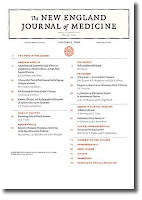Several people have recently urged me to consider studies demonstrating the error rates in diagnosing PVS. While I have yet to do so, I did notice this appellate opinion published yesterday in Wisconsin, and briefly reported by the Chicago Tribune
published yesterday in Wisconsin, and briefly reported by the Chicago Tribune .
.
In 2000, Tywanda Luckett suffered permanent severe brain damage allegedly due to medical malpractice. In a damages action brought in 2003, one of the defendants asked the plaintiffs to admit that Tywanda was in a PVS and that the PVS was permanent. Plaintiffs made those admissions. Presumably both treating physicians and/or retained experts had reached this conclusion. Notably, plaintiff's counsel made the admissions knowing that they would substantially reduce the value of the case both for the plaintiffs and for himself.
In preparing for trial, plaintiffs' counsel found doctor's notes stating that, in 2001, Tywanda could "follow simply commands," "comprehend some of what is said to her," and is "aware" and "responsive." Since such evidence strongly suggests that Tywanda was not in PVS, counsel sought to withdraw the admission. The trial court allowed this and the appellate court affirmed, even though Tywanda is now deceased and defendants cannot examine her. Consequently, the value of the case has now changed dramatically with the addition of five years of pain and suffering damages.
....................................
8mm
